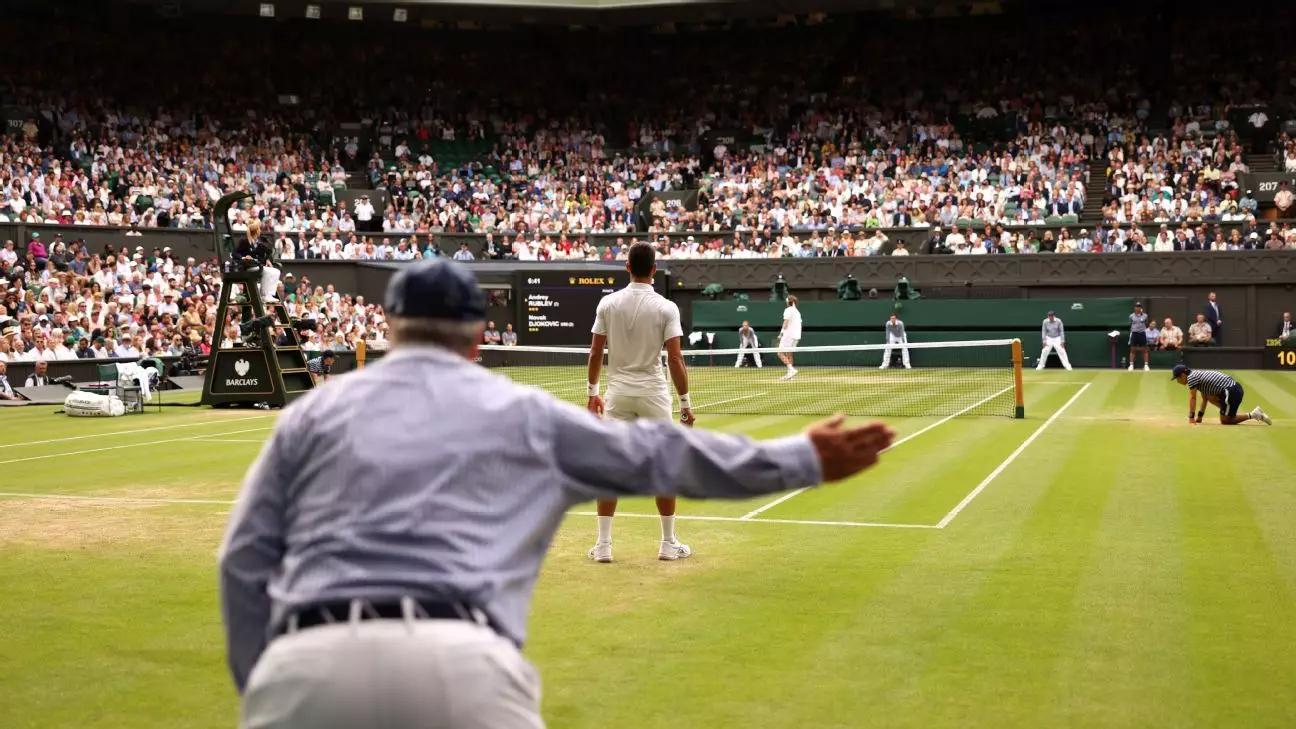In a historic move that signals a shift toward technological advancement, the All England Club has announced that the prestigious Wimbledon Championships will eliminate human line judges in favor of automated line-calling systems powered by artificial intelligence. This monumental decision, confirmed on a Wednesday in October 2023, marks a significant turning point in tennis officiating, as it will be the first time in 147 years that human line officials will be absent from the event. The introduction of this technology across all 18 courts reflects an ongoing trend in sports—fostering accuracy through innovation while grappling with the challenges of preserving tradition.
The transition to automated electronic line-calling has been gradual, with various tournaments experimenting with technology in recent years. The 2020 US Open was a trailblazer in this domain, implementing the Hawk-Eye Live system to replace traditional line judging. The positive reception to these advancements has led to an accelerated adoption rate on the ATP Tour, with a full rollout anticipated by 2025. Wimbledon’s decision to follow suit emphasizes a broader acceptance of technology in ensuring fair play and streamlining officiating processes across the sport.
This automated system will utilize voice calls to adjudicate line decisions, effectively removing the challenge-concept that has previously allowed players to dispute calls. The technology builds upon existing Hawk-Eye systems that have long provided ball tracking and line calling, demonstrating a commitment to accuracy that players and fans alike will benefit from. As the All England Club stated, it has taken considerable time to assess the reliability and efficacy of such technology, ensuring that the shift aligns with players’ experiences elsewhere in professional tennis.
One of the most critical aspects of this transition is the recognition of the role human officials have played in the sport’s history. Sally Bolton, CEO of the All England Club, underscored the importance of balancing innovation with the club’s rich traditions. She acknowledged the invaluable contributions of line judges and expressed gratitude for their service over decades. The move to automation should not be seen as a dismissal of human contribution; rather, it highlights the need to modernize and adapt amidst changing times.
Moreover, the incorporation of AI into officiating poses both opportunities and challenges. While the focus will undoubtedly be on achieving maximum accuracy in calls, there are inherent concerns about the potential loss of human elements in the sport. The question remains: Can the essence and atmosphere of tennis endure without the traditional presence of line umpires?
In conjunction with the technological upgrades in officiating, the All England Club has also announced that the start times for the men’s and women’s singles finals will be adjusted. Provisional start times are now set for 4 p.m. local time, which seeks to enhance viewership and create a more compelling atmosphere for spectators. This change, along with the innovative calling system, aims to elevate the overall championship experience while maintaining the allure that Wimbledon has cultivated over the years.
As Wimbledon embraces these ground-breaking changes, it stands at the cusp of a future that could redefine the way tennis is played and officiated, blending the rich heritage of the sport with the precision and accuracy that modern technology can offer.

